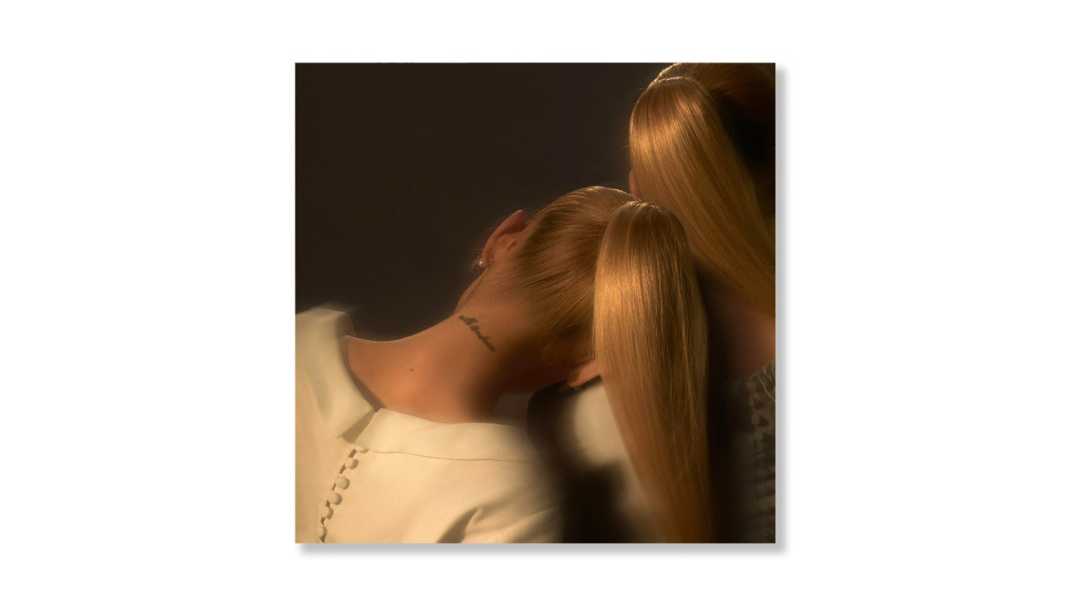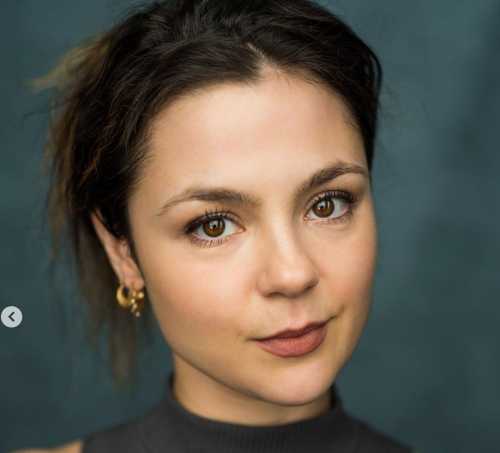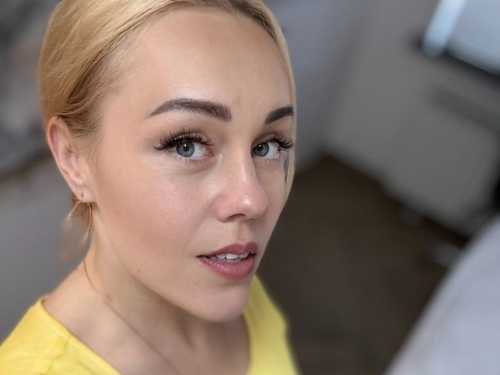
Save this storySave this storySave this storySave this story
Confessional pop music has become freighted over the years by a kind of heightened expectation. Fans see more of pop stars now, in the quasi-candid precincts of social media, which means that fans believe themselves to have an understanding of pop stars, and there is a way in which songs or albums or music videos can capitalize on that understanding (or, as it were, misunderstanding). The thirty-year-old pop star Ariana Grande, in the course of a decade-plus musical career consisting of six platinum or multiplatinum albums, has revelled in blurring the line between what’s in her songs and what’s in the tabloids, be it with cryptic (or not-so-cryptic) social-media postings or with well-timed photo ops. (Recall, for example, the 2018 shot of Grande with her then fiancé, Pete Davidson, holding a lollipop while walking down the street and looking up at Davidson in doe-eyed admiration.) More even than Taylor Swift, whose memoiristic songwriting tends toward a broad universality, Grande’s music has sometimes reacted brazenly to the press’s speculation and intrigue. She is not afraid to name names, or to conduct internal monologues aloud.
Grande, who has just released her seventh album, “Eternal Sunshine,” has been on one stage or another for most of her life. Growing up in Boca Raton, Florida, she performed in regional children’s theatre, and sang the national anthem at a Florida Panthers game at the age of eight. She performed with Florida symphonies and, by fourteen, was in Los Angeles, meeting with managers in the hopes of recording an R. & B. album. After a four-season stint on the Nickelodeon show “Victorious,” she transformed herself from a teen TV personality into a full-fledged pop star, with the 2013 album “Yours Truly,” which débuted at the top of the Billboard 200 chart. It highlighted her range as a performer, and in particular her vocal dexterity, which drew her comparisons to Mariah Carey, though what was most distinctive about Grande as a singer wasn’t her Mariah-esque control but the playful twists and turns in her pace and delivery.
Grande’s most critically acclaimed release was the 2019 album “Thank U, Next,” whose title track catalogued her very public string of failed relationships, including with Davidson and the late rapper and producer Mac Miller. Both tender and cheeky, the song marked her growth as a writer of love songs, showcasing her finely tuned ability to pull from private emotions as much as from gossip and headlines. Most notably, she revealed herself to have a singular talent for writing songs with an air of mischief. The album’s final track, “Break Up with Your Girlfriend, I’m Bored,” was as sultry as it was silly, with plainspoken lyrics that eschewed metaphor or double meanings without forsaking catchiness. (“Actin’ all innocent, please / When I know you’re out here thinkin’ ’bout it.”) If “Thank U, Next” was an album propelled by the concept of moving on, her 2020 album, “Positions,” made during Grande’s relationship with Dalton Gomez, was her ode to romantic devotion. Its songs homed in on the somewhat mundane intimacies of a comfortable, committed relationship, pulling from old (yet reliable) tropes such as waking up next to a person in his most unfiltered state. “Positions” didn’t have as many radio-ready pop bangers as its predecessor, but its title track, with its bouncy strings and guitar, innuendo-laced lyrics, and infectiously choppy chorus, did end up topping the charts. Where “Positions” thrived, instead, was in a sparse, midtempo space. Many of its best songs were built around drum-heavy arrangements with sprinkles of light instrumentation, allowing Grande’s voice and lyricism to come to the fore. The album radiated what is, to me, one of the best feelings: the foolish invincibility of being newly in love.
“Eternal Sunshine” is Grande’s first album since 2020, which is the longest stretch she’s gone between new releases. She has spent much of the past two years filming the movie adaptation of “Wicked,” in which she will star as Glinda the Good Witch, a role that will return her to her theatre-kid roots. In that time, she also separated from Gomez and then sent the tabloid cycle into overdrive, just days after the news of an impending divorce broke, when a new relationship with her “Wicked” co-star Ethan Slater became public, and he subsequently filed for divorce from his wife. “Eternal Sunshine” is therefore, at least loosely, a breakup album, which means that it could be considered, alongside “Thank U, Next” and “Positions,” as a sort of trilogy, with an arc from heartbreak to healing to fresh rupture.
The tracks—eleven of which were produced by the Swedish hitmaker Max Martin, a longtime Grande collaborator—range from uptempo and electronic tracks (“Supernatural”) to bass-and-drum house-influenced pop (“Yes, And?”) to the more stripped-down R. & B. ballad “Imperfect for You.” “We Can’t Be Friends (Wait for Your Love),” a song of pulsing bass and punchy vocals, sits tonally somewhere between pining for a lost love and (slightly uncertain) contentment with moving beyond it. The chorus (“Cling to your papers and pens / Wait until you like me again”) rubs up against the lyrics of the bridge (“For now, it’s only me / And maybe that’s all I need”). The music video, released last Friday along with the album, attempts to clarify the narrative by borrowing a conceit from the 2004 film “Eternal Sunshine of the Spotless Mind”: Grande goes into a procedure to have memories of her ex erased and then, as fond memories play out in front of her, frantically attempts to interfere with the operation. But I like the emotional incongruity of the lyrics, which seem to find her split in two. A sense of longing runs throughout the album, but Grande, always self-aware, cannot resist playing the role of provocateur, which she might do here better than she ever has before. “You got me misunderstood, but at least I look this good,” she sings.
There are three songs in a row that I read as their own mini-trilogy of sorts, beginning with “True Story,” in which Grande weaves between the roles of victim and gloating villain. The second verse, seemingly responding to those who’ve said that her relationship with Slater makes her a homewrecker, begins, “I’ll play the bad girl if you need me to / If it makes you feel better.” A second song, “The Boy Is Mine,” interpolates musical elements from the 1998 Brandy and Monica song of the same name, channelling nineties R. & B. with chunky bass and stuttering drums. In the lyrics, Grande insists that she has to take accountability for all of the tears she’s caused but, in conclusion, decides, with an exuberant shrug of a line, “I can’t ignore my heart.” The trio ends with “Yes, And?,” the album’s first single, which, with its waves of piano and synth and churning drums, sounds reminiscent of Madonna’s “Vogue” and finds Grande sounding less interested in provocation than in boundary-setting:
Come on and walk this way through the fire (don’t care what’s on their mind)
And if you find yourself in a dark situation
Just turn on your light and be, like,
“Yes, and?”
Say that shit with your chest, and
Be your own fuckin’ best friend
Even on the album’s more confrontational songs, though, one senses Grande sometimes wishing for a reality that simply isn’t there, or at least mournfully taking inventory. On “I Wish I Hated You,” a sparse ballad, she sings of the unique form of romantic purgatory when you don’t necessarily want a person back but don’t want to be without them, either. The album’s final song, “Ordinary Things,” ends with a brief monologue that Grande recorded of her grandmother Marjorie talking to a friend. On the opening track, “Intro (End of the World),” Grande sings, “How can I tell if I’m in the right relationship?” and Marjorie’s monologue, bookending the album, serves as a kind of answer. It begins, midsentence: “And when he’d come home and I’d see him, when he first gets off that train, it was like God Almighty arrived, it was like seein’ daylight.” She goes on to offer advice: don’t go to bed without kissing each other good night, and, if you feel like you can’t kiss each other good night, it’s time to go, you’re in the wrong relationship. It’s a fitting close to an album on which Grande is seeking answers to Big Questions of romance and partnership. If “Positions” was a high-optimism exploration of the power of being in love, “Eternal Sunshine” comes back down to earth. Relationships are imperfect, and you’ve got to commit yourself to staying. Until, of course, you want to go. ♦
Sourse: newyorker.com






